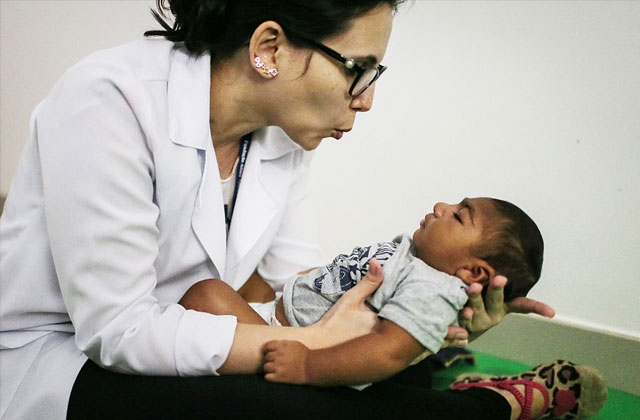The Senate Fails to Pass a Bill That Would Fund the Fight Against Zika in the United States

This summer has already broken records with its scorching temperatures. And with the heat comes an increase in mosquitos. But these pests are more than just annoying. Given the recent outbreaks of the Zika, they’re scary. And thanks to partisan gridlock, the U.S. response to this mosquito-borne virus is late.
On Tuesday (June 28), in a vote of 52 to 48, Senate Democrats blocked a federal spending bill that would have provided $1.1 billion to fight Zika virus, the New York Times reported.The earliest Congress can approve new funds is when members return from recess after the Fourth of July.
After months of wrangling, the final bill was expected to pass through the Senate with little resistance. But Democrats withdrew their support after Republicans inserted provisions unrelated to Zika, including those that would decrease pesticide regulation, eliminate a proposed ban on Confederate flags at federal cemeteries and block funding to Planned Parenthood.
“I don’t remember anything as outrageous, as shameful as this piece of legislation,” said Senate Minority Leader Harry M. Reid (D-Nev.) on the Senate floor.
Now, Southern states must prepare to deal with a potential Zika outbreak this summer—and with no financial assistance to fight it. The disease can cause microcephaly, a birth defect where a baby's head doesn't grow to its full size, leading to intellectual disabilities, hearing loss and feeding problems.
Zika has been raging through Latin America and the Caribbean since March 2015, but the summer seasons of the U.S. Southwest and Southeast are inviting for the mosquitos that carry the illness.
These two regions are home to the majority of the United States’ Black and Latinx people. In the Southwest region that includes California, New Mexico, Arizona and Texas, Latinx people make up 38 to 43 percent of the population. Large percentages of Black people live in the Southeast, where parts of Florida, Mississippi and Louisiana are vulnerable to Zika outbreaks. Twenty-seven to 31 percent of Black people in the U.S. live in Florida; 27 to 31 percent live in Louisiana and 37 to 47 percent are in Mississippi.
So far, the CDC has documented 819 travel-associated cases of Zika in the United States. None of the victims acquired the virus locally, but this summer could change that, according NPR.
"No one in the population has had the disease before, so nobody is immune to it, nobody has antibodies to it," New York Times reporter Donald G. McNeil Jr. told NPR. "After this year, a fair number of people will be immune, and each year immunity will grow."
The CDC is currently monitoring 265 women whose lab tests have shown possible infection. Four infants have been born so far with defects, including microcephaly, abnormal eye development and other issues resulting from brain damage. Four pregnancies with birth defects have ended—two by abortion, two by miscarriage.
